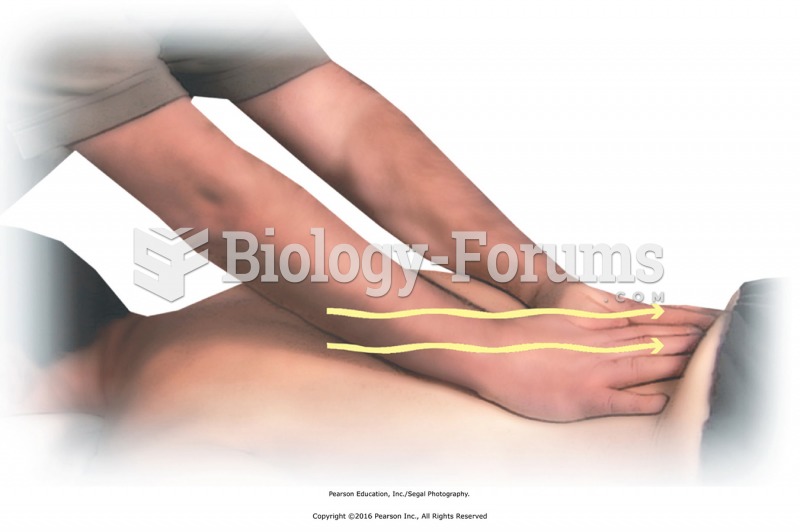|
|
|
Pink eye is a term that refers to conjunctivitis, which is inflammation of the thin, clear membrane (conjunctiva) over the white part of the eye (sclera). It may be triggered by a virus, bacteria, or foreign body in the eye. Antibiotic eye drops alleviate bacterial conjunctivitis, and antihistamine allergy pills or eye drops help control allergic conjunctivitis symptoms.
The eye muscles are the most active muscles in the whole body. The external muscles that move the eyes are the strongest muscles in the human body for the job they have to do. They are 100 times more powerful than they need to be.
Approximately 70% of expectant mothers report experiencing some symptoms of morning sickness during the first trimester of pregnancy.
Vampire bats have a natural anticoagulant in their saliva that permits continuous bleeding after they painlessly open a wound with their incisors. This capillary blood does not cause any significant blood loss to their victims.
Most fungi that pathogenically affect humans live in soil. If a person is not healthy, has an open wound, or is immunocompromised, a fungal infection can be very aggressive.
 Many gasoline service stations have signs posted warning customers to place plastic fuel containers ...
Many gasoline service stations have signs posted warning customers to place plastic fuel containers ...
 Exchange of gases between lungs and blood. High concentration of CO2 in blood capillary entering the ...
Exchange of gases between lungs and blood. High concentration of CO2 in blood capillary entering the ...
 Effleurage clockwise to abdomen. Place palm over palm, and apply effleurage in a circle around the ...
Effleurage clockwise to abdomen. Place palm over palm, and apply effleurage in a circle around the ...




